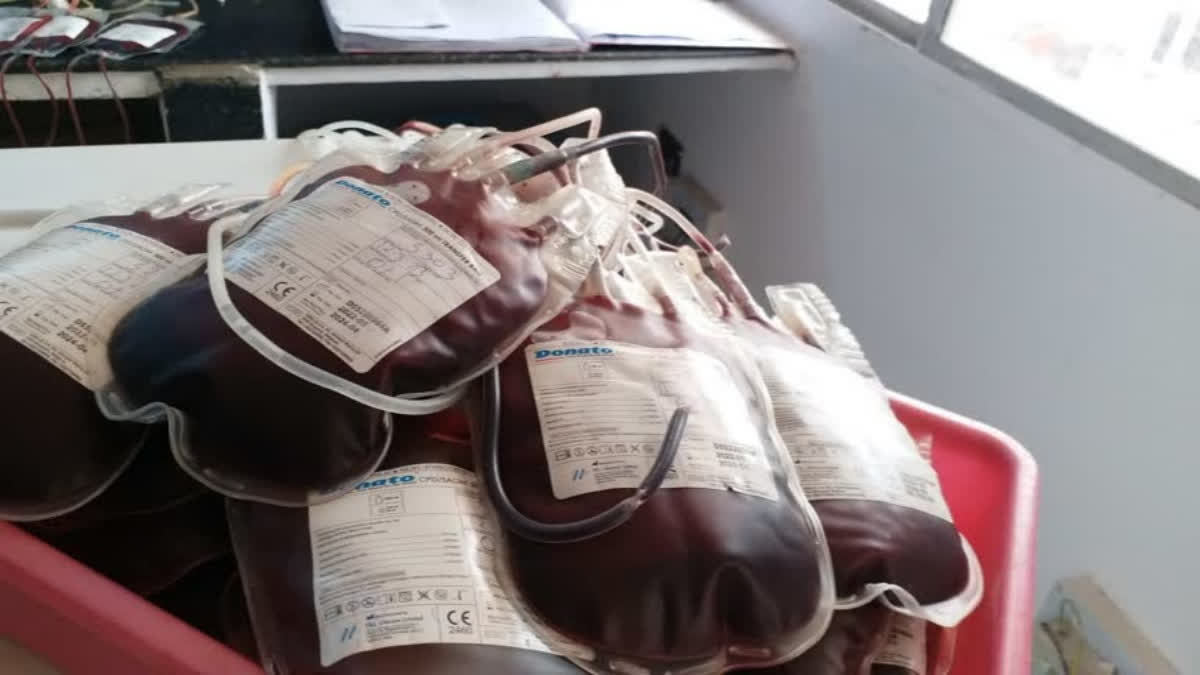Kendrapada: In Odisha's Kendrapada district, where life for many is already a daily struggle, a severe shortage of blood at local hospitals has turned hope into desperation for families with anemic children. More than ten young lives hang in the balance, needing regular blood transfusions that are often unavailable in their home district. For these families, the monthly journey to Cuttack’s SCB Medical College and Hospital is a costly and exhausting ordeal, yet the only way to keep their children alive.
Brahmananda Sethi, a daily wage worker living in the slums of this village, worries about the future of his children. His 9-year-old son and 7-year-old daughter are both diagnosed with anaemia, and need monthly blood transfusions to survive. Brahmananda recounts the harrowing situation his family faces, “It costs us around Rs 2000 every month just to go to Cuttack and cover the medical expenses. I don’t know for how long we can manage to bear the expenses.”
Brahmananda’s concerns are echoed by other families in the village. Another 12-year-old girl, and several others like her are in dire need of blood. But the lack of blood supply at Kendrapada District Headquarters Hospital means families have no choice but to travel to Cuttack. Baidhar Sethi, father of the girl, worries about his daughter’s worsening health, stating that each trip to the Cuttack blood bank drains the family’s measly savings.
Limited Resources and Growing Needs
Parents report that when they initially sought treatment at the district headquarters hospital, the blood provided wasn’t sufficient, and in some cases, it worsened their children’s conditions. The blood shortage, coupled with inconsistent quality, led many families to seek care at Cuttack’s central blood bank, where they were told that their children needed a Packed Red Blood Cells (PRBC) blood.
As their children grow, the blood requirement has surged from an initial 50-100 milliliters to nearly 700 milliliters per month. However, families are often only able to secure 100 milliliters from Cuttack’s facilities, leaving them desperate to cover the deficit.
Health Department’s Perspective
Dr. Pramod Kumar Praharaj, the in-charge District Health Officer, acknowledges the prevalence of anemia and thalassemia in the area. “Each month, between 130-160 thalassemia patients require blood from our district blood bank,” he says, adding that genetic factors contribute to the high incidence of the disease.
Yet, for families like Brahmananda’s, these explanations provide little comfort. For them, every missed transfusion day brings new symptoms: their children’s faces swell, their limbs become pale, and their strength ebbs away.
Children in Kendrapada suffering from anemia need PRBC, yet this supply is unavailable at the district’s main blood bank. Currently, only whole blood with a shelf life of 35 days is accessible, according to a blood bank staff, who spoke to ETV Bharat on condition of anonymity. "While the blood bank needs 10,000 units of blood to change it to PRBC, Kendrapada’s collection rate remains critically low, with just 300–400 units per month, totaling only 3,600–4,800 units annually," he stated. Additionally, the blood bank lacks machines required for the purpose, the official said, also pointing to staff shortage as an impediment. "We have 13 permanent employees to meet demand, but currently the facility operates with just 7, including doctors, resulting in a staffing shortfall," he added.
As district hospitals struggle with limited resources, the children of Kendrapada’s villages continue their fight, one transfusion at a time, while their families hope for a day when their village’s blood supply will no longer fail them.
Read More



